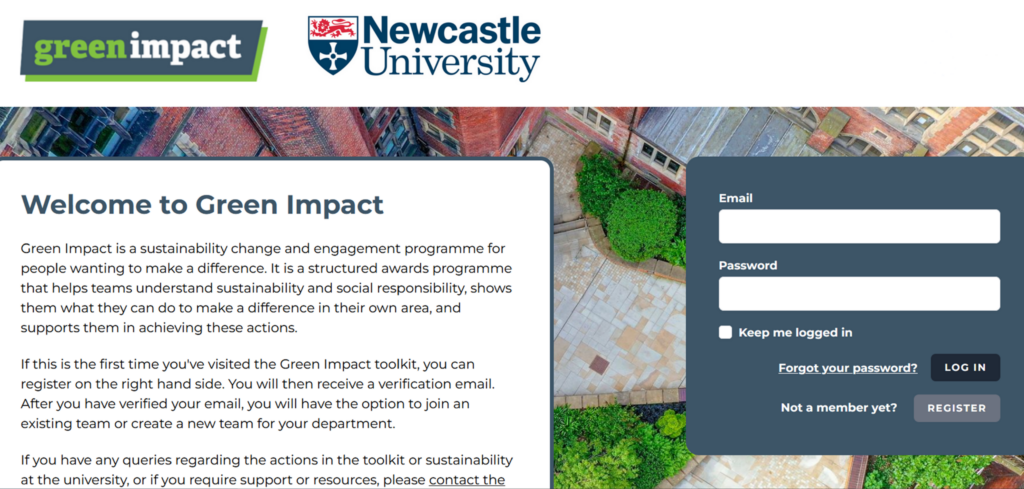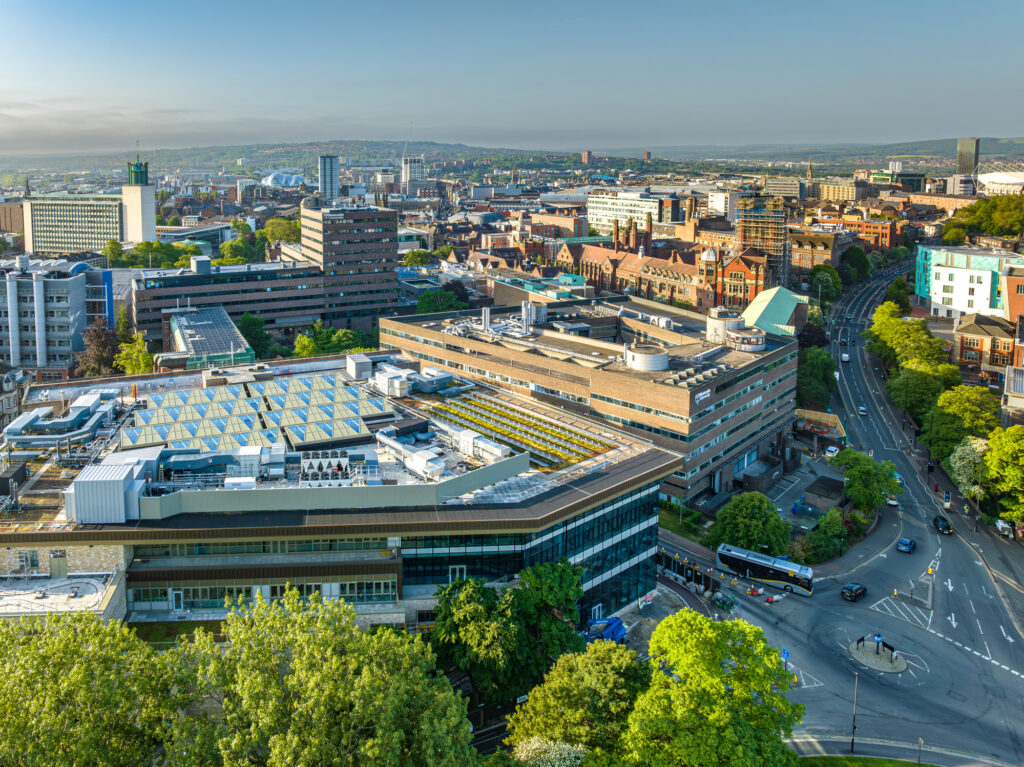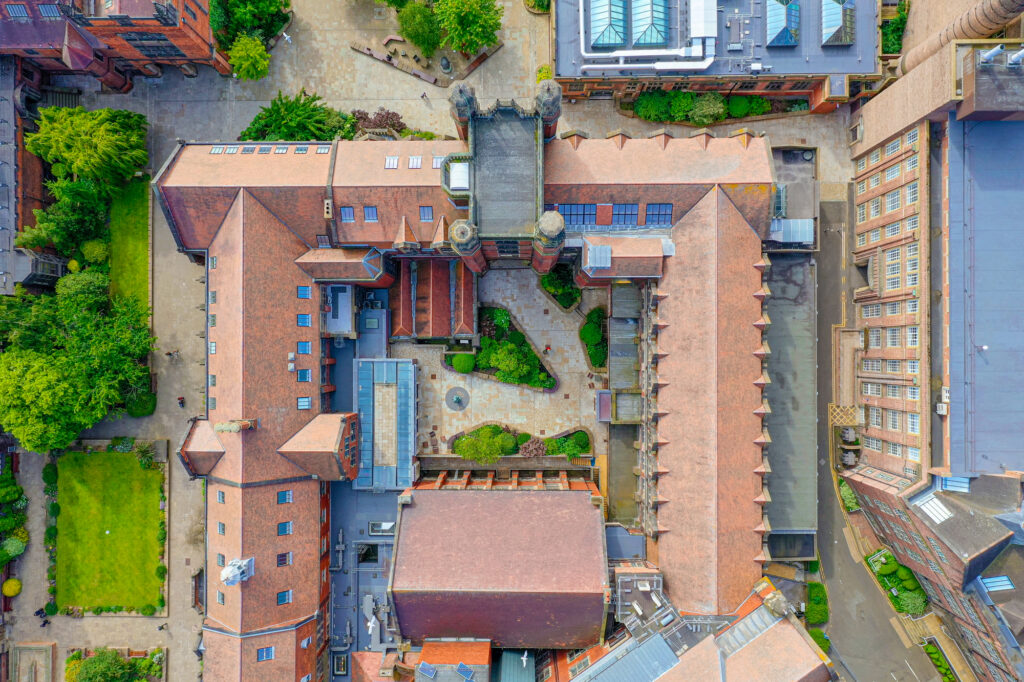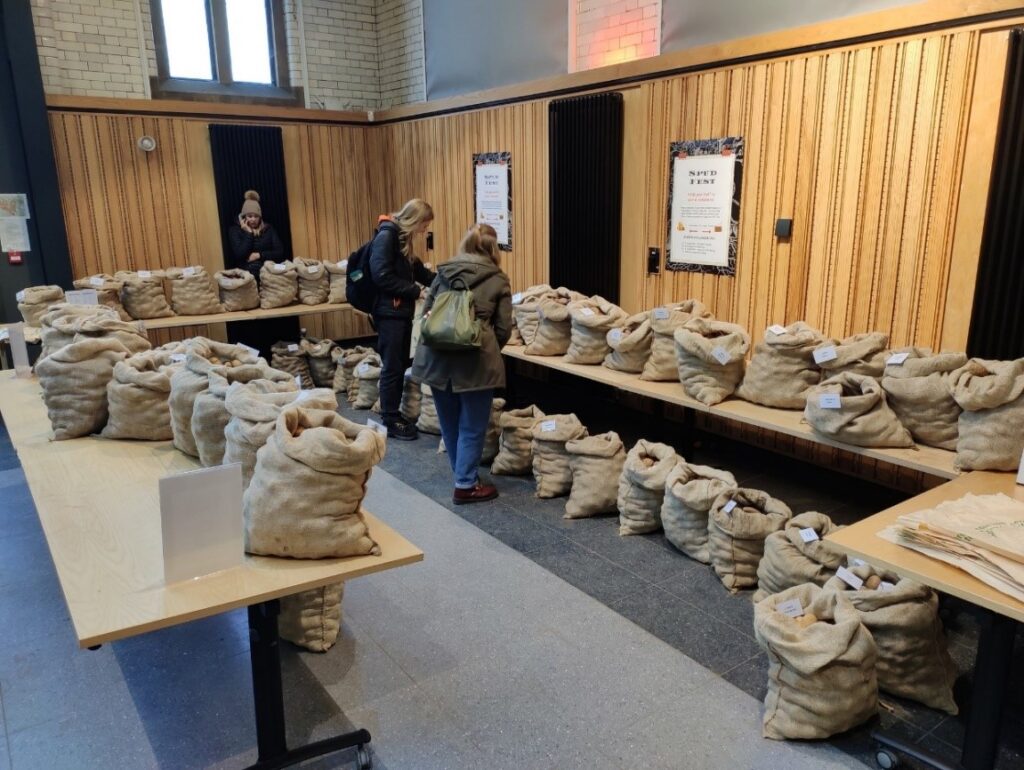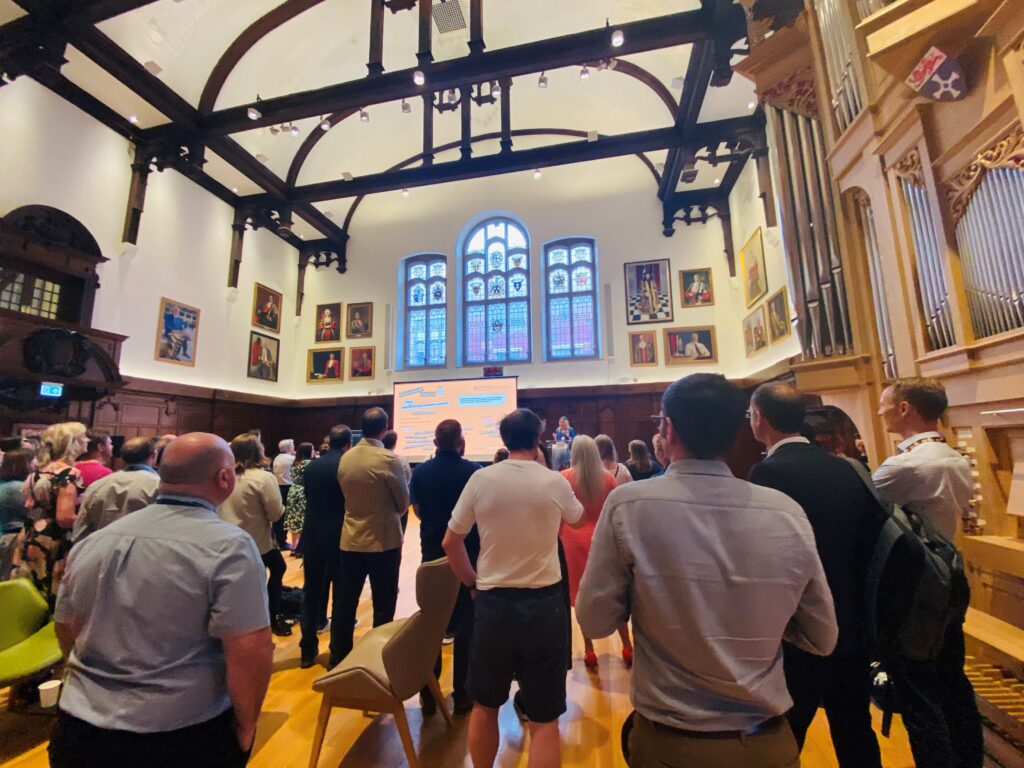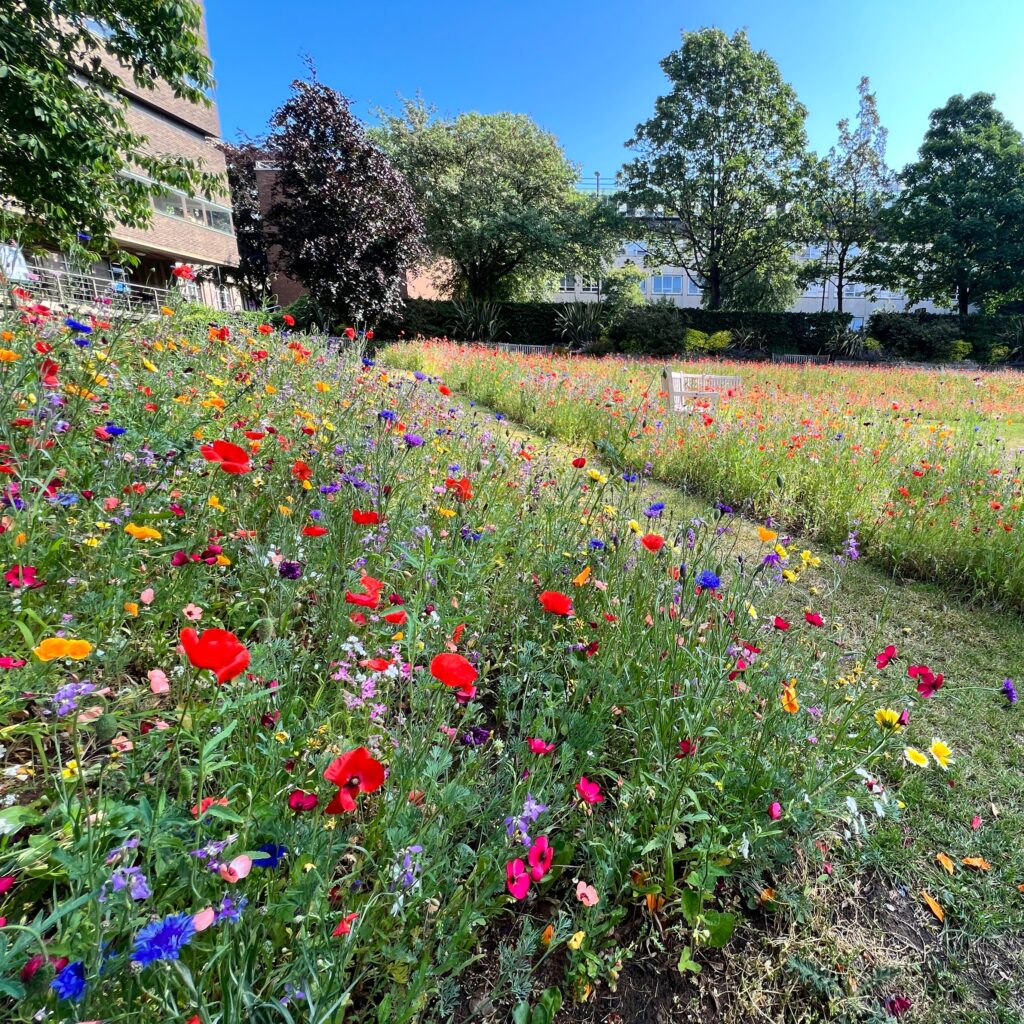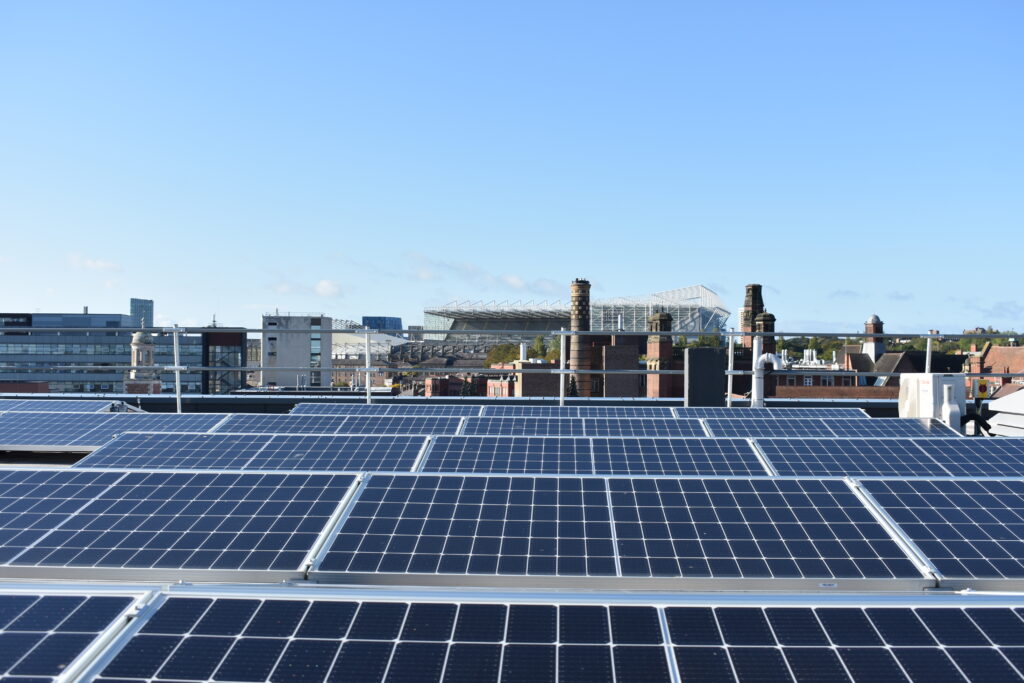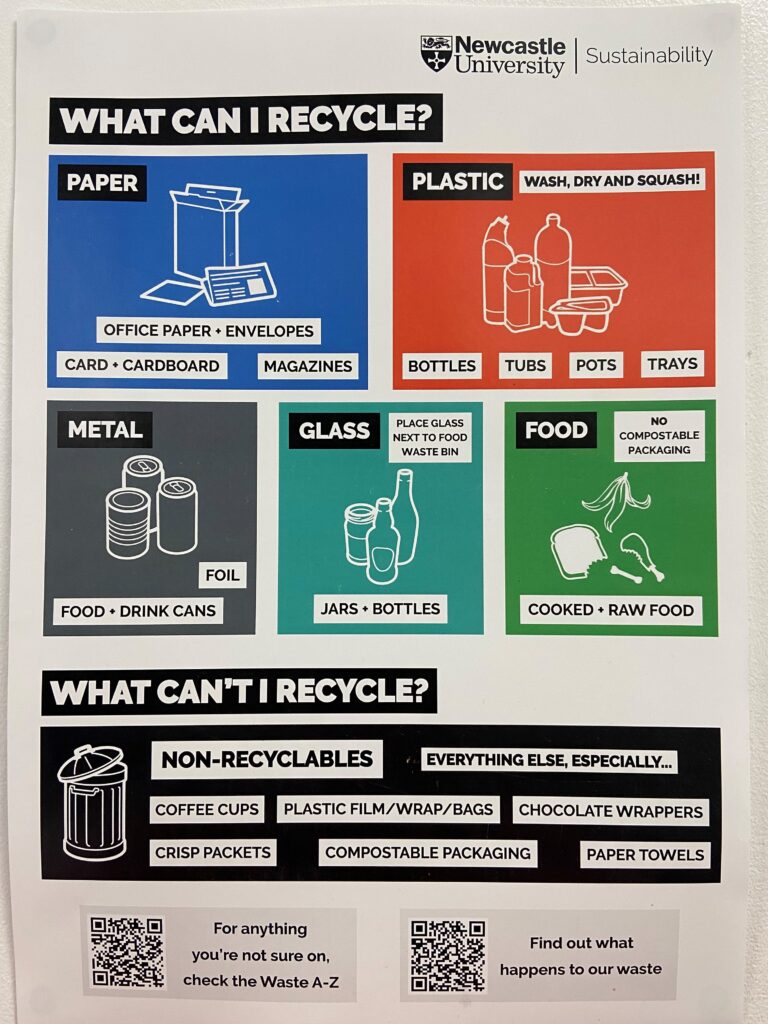Running Monday through Friday last week, Newcastle University Student’s Union (NUSU) collaborated with a wide variety of groups and individuals (including us the Sustainability Team!) to organise an action-packed week of sustainability events. Read on to learn more about the range of engaging and thought provoking sessions put on!
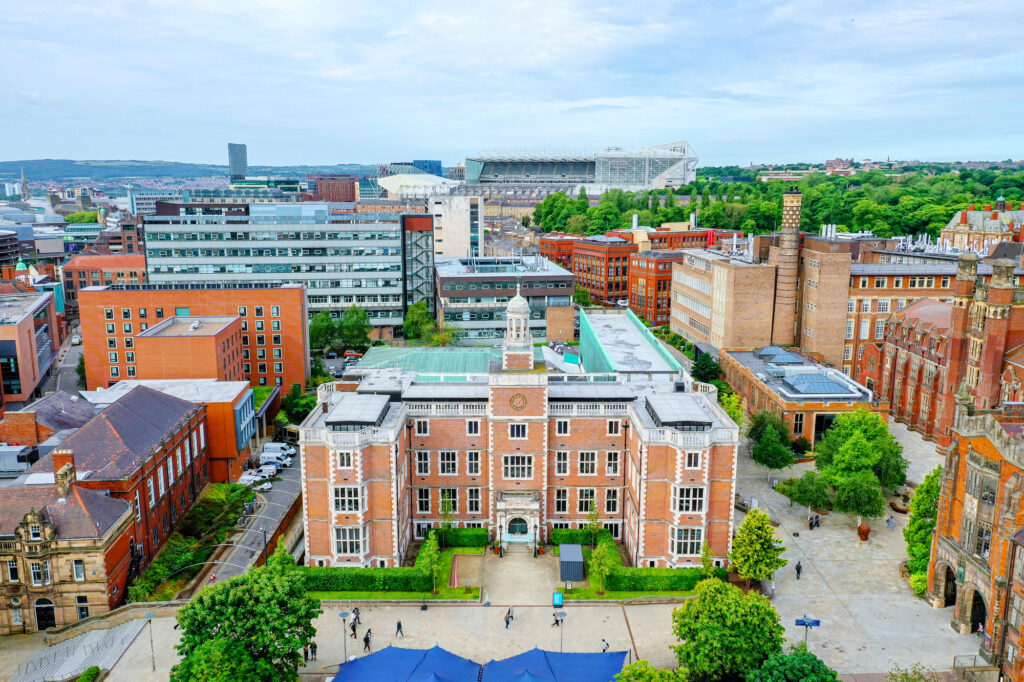
James’ Park in the background. Credit: Elemental Photography.
Monday 19 February
Second-hand Market
To kick off the week, Alex Theodosiou (NUSU’s Activities Officer) organised a market of student-run stalls for our university community to come together and exchange items. Championing reuse and the circular economy, the event helped to find new homes for a variety of items and thus extended their useful lifespans!
Information Stalls/Q&A with Newcastle University
Next, in the nearby King’s Road Boiler House, we in the University’s Sustainability Team hosted a Q&A and information fair on everything sustainability at the University and beyond! Stall holders included Newcastle City Council, the School of Natural and Environmental Sciences, and the Student Brewing Society. Additionally, our Q&A panel included sustainability professionals from our team alongside postgraduate students, NUSU representatives, and our Pro-Vice-Chancellor Global and Sustainability, Richard Davies!
Give it a Go: Making Upcycled Crafts Tea Lights
Continuing the circular economy theme of the morning’s second-hand market, Monday finished with an upcycling workshop to create home décor at no cost to the planet! The social was a lovely, relaxed way to wrap up the first day with new people and a chance to get creative.
Tuesday 20 February
Swap Shop
Tuesday began with a return of the popular Swap Shop initiative at NUSU! The event drew colleagues and students from across campus to reduce purchases of new items and instead find new homes for all sorts of clothing via direct swaps. This non-monetary approach was continued at the end, with all unused clothing being donated to local charity shops!
Give it a Go: Charity Shop Tour
Following on perfectly from the morning’s Swap Shop, Tuesday afternoon featured a tour of our favourite charity shops in town and introduced colleagues and students to the range of quality items that can be found when low-impact shopping!
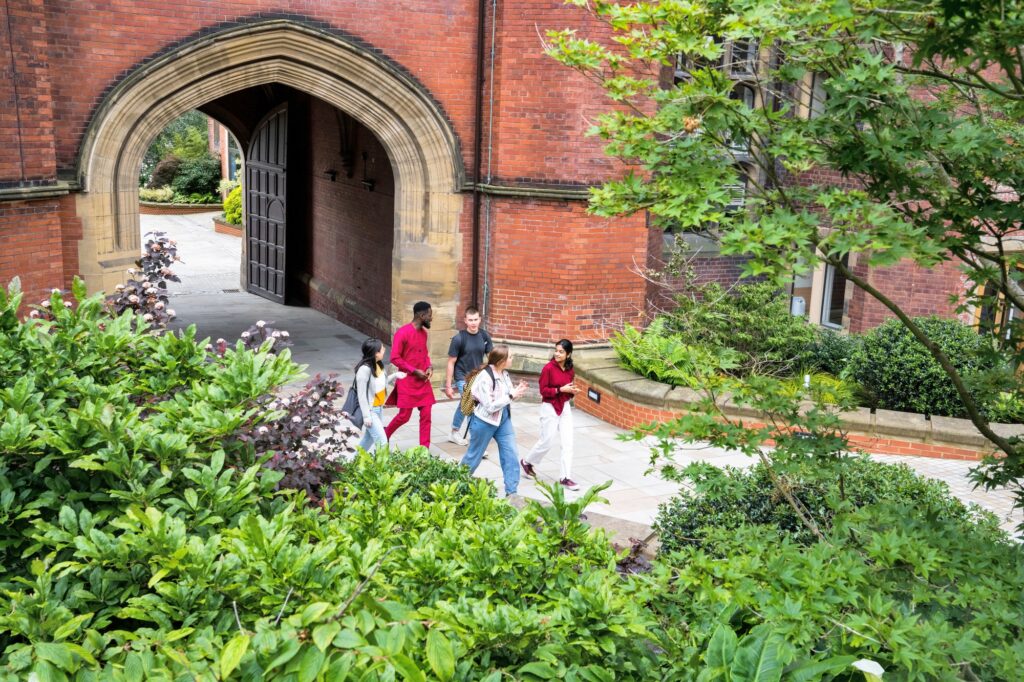
Wednesday 21 February
Fossil Free Careers Workshop with People and Planet
Offering information and ideas for greener futures, the Fossil Free Careers campaign joined People and Planet to host an engaging workshop on sustainable work and decarbonising the recruitment industry.
Give it a Go: Beach walk and collecting items for upcycling crafting
Wednesday afternoon saw a trip to the coast to explore King Edward’s Bay and Long Sands beach and learn about the valuable crafts materials we’d elsewise simply walk past. The trip included gathering of shells, pebbles, and driftwood, all in preparation for the crafts session on Thursday!
Thursday 22 February
Sustainable Finance with John Adams
The first session on Thursday was a workshop with former banker John Adams on the financial flows and major state and corporate players fuelling climate change. The session widened to include a wide range climate change associated issues and offered food for thought on the ways that the financial and fossil fuels industries can be influenced to reduce their climate destruction.
Give it a Go: Making beach upcycled crafts
The second part to Wednesday’s beach walk, Thursday finished with an upcycling crafts session to transform the resources gathered the day before into stunning decorations!
Friday 23 February
Pond Workshop & Ouseburn Trip with Mike Jeffries
To finish off the week, NUSU Go Volunteer and Eco-soc came together with Professor Mike Jeffries of Northumbria University for a hands-on introduction to small scale freshwater habitats, the biodiversity they support, and how we can create and maintain them in our communities! This session was especially relevant as proposals from the Student Environment and Sustainability Committee for a pond habitat here on campus are currently being considered in plans of projects here at Newcastle University.
A huge thank you to NUSU and everyone who got involved to make this such an incredible week of community building, awareness raising, and sustainable action!


